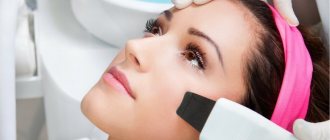Memo for patients when visiting the clinic for surgical treatment under anesthesia
To your health:
- The state of health plays an important role in how anesthesia will proceed, as well as how comfortable it will be to awaken from anesthesia. Before anesthesia, it is important to undergo a comprehensive examination of the body, including a consultation with a general practitioner, a series of tests and instrumental research methods. If there are any chronic diseases, then with the help of the attending physician it is necessary to achieve a stable remission of these diseases.
- Routine anesthesia is possible against the background of a stable state of health; on the day of surgery there should be no signs of acute respiratory viral infection.
- The most important role during anesthesia is assigned to the heart and lungs, therefore, before anesthesia, the performance of these organs should be as close to satisfactory as possible - this means that colds, obstructive bronchitis, asthma, hypertension, angina pectoris, heart failure should be treated and be in the stage of compensation .
- Avoid smoking cigarettes 6 weeks before the proposed surgery. This will significantly reduce the risk of respiratory complications after surgery. If you were unable to quit smoking, then at least try not to smoke on the day of surgery.
- If you have loose teeth or crowns, get treatment from a dentist, as these teeth may be lost when the anesthesiologist manages the airway (using devices specially designed for this in the oral cavity).
- Don't forget to take all your medications to the hospital.
Before the operation, it is necessary to undergo tests, then, based on the results of a laboratory examination, undergo a consultation with a therapist and an anesthesiologist. Tests are taken on an empty stomach (you cannot eat or drink, the day before you must refrain from fatty and salty foods).
Rules for preparing for anesthesia on an outpatient basis
Anesthesia can only be administered on an empty stomach!
If you are recommended to have a one-stage preparation plan for colonoscopy, then the entire calculated volume is taken in the evening.
In the morning on the day of the study, you can drink 200 ml of tea or coffee without milk, while observing a 4-hour break between the intake of liquid and the time of the upcoming study. This is the time during which fluid from the stomach is absorbed or passes into the lower gastrointestinal tract.
THERE ARE CONTRAINDICATIONS for morning fluid intake in patients with high BMI (body mass index), GERD (gastroesophageal reflux disease) and some others. At your appointment, the anesthesiologist will assess your condition and give specific recommendations.
If you are bothered by thirst or dry mouth before the examination, you can rinse your mouth.
About basic therapy:
— when studying in the first half of the day, it is possible to take medications until 07.00. The anesthesiologist will explain to you at your appointment which drugs can be taken and which ones can be deferred until the post-anesthesia period.
If you are recommended to have a two-stage preparation regimen for the study, then the morning dose of the drug to cleanse the intestines should be taken at least 6 hours before the upcoming study.
About drinking regime:
4 hours before the test, if there are no contraindications, you can drink (except for the bowel cleansing drug) 200 ml of tea or coffee without milk.
About basic therapy:
- when examining in the afternoon - take basic medications in the morning in the recommended mode; - when studying in the first half of the day - it is possible to take medications until 07.00. The anesthesiologist will explain to you at your appointment which drugs can be taken and which ones can be deferred until the post-anesthesia period.
THERE ARE RELATIVE CONTRAINDICATIONS for two-stage preparation. If the anesthesiologist identifies contraindications during your appointment, you will be advised to adjust your bowel preparation regimen from a gastroenterologist or endoscopist.
If you are under anesthesia today, when can you eat and drink?
Usually the last meal on the eve of surgery is 18:00. On the morning of your surgery or outpatient test, you should not drink anything, including water. Eating is also prohibited. This prohibition is the best prevention of such a life-threatening complication during anesthesia as vomiting and the entry of vomit into the respiratory tract.
By the same principle, it is necessary to stop smoking on the day of the operation or examination, at least 4 hours in advance.
Depending on the operation, drinking water may be allowed after 3 hours, eating solid food after 6 hours (ONLY WITH DOCTOR'S PERMISSION!)
After anesthesia for outpatient studies, you can drink after 40 minutes, and resume eating solid food after 1.5 - 2 hours in small portions.
On the day after anesthesia, it is strictly prohibited to take sedatives and alcohol. In a hospital setting, take medications strictly as prescribed by the doctor.
Does anesthesia affect memory and life expectancy?
After surgery, patients sometimes cannot remember how the preparation took place, how they fell asleep, how they woke up and got dressed after the outpatient examination. But in the long term, anesthesia has no effect on memory.
Calculated doses of the drug are administered fractionally, thereby maintaining drug-induced sleep for the entire study period.
Functional recovery after cessation of propofol administration occurs quickly (half-life - from 2 to 8 minutes).
After anesthesia, for your safety, you are required to stay in the recovery room under the supervision of medical personnel for at least 30 minutes. It takes about 3 hours until consciousness is fully restored. Moderate general weakness and slight drowsiness may persist for 30-60 minutes. It is better to go home with a capable escort.
You cannot drive a car after anesthesia .
precision equipment, make responsible decisions within 6-8 hours!
Is outpatient anesthesia anesthesia?
In outpatient anesthesiology, it is very important to comply with all standards of anesthesia management aimed at ensuring the comfort and safety of the patient’s life.
The approach “small operation - little anesthesia” is extremely wrong!
Outpatient anesthesia is a full-fledged anesthesiological benefit; it is carried out by anesthesiological teams who also work in standard operating rooms.
Ambulatory anesthesiology uses standard patient monitoring and anesthesia equipment similar to those found in regular operating rooms. Violation of these generally accepted rules is considered absolutely unacceptable.
When choosing drugs for anesthesia in outpatient surgery, preference is given to drugs with a short half-life (midazolam, propofol) and inhalational anesthetics.
What needs to be done before anesthesia?
The day of the operation arrived and the excitement overwhelmed me even more. At this moment, you need to pull yourself together and remember all the recommendations of the anesthesiologist.
Eating and drinking on the day of anesthesia is strictly prohibited. If the thirst is unquenchable, rinsing the mouth is allowed. No smoking!
Carrying out morning hygiene measures is not prohibited.
Having assessed the scope of the surgical intervention and the patient’s well-being, the anesthesiologist-resuscitator will decide on the length of the patient’s postoperative stay in the anesthesiology and resuscitation department.
The patient should turn off the sound on mobile communication devices, women should remove makeup and nail polish, leave all jewelry, dentures, hearing aids, contact lenses or glasses. It is necessary to prepare a container of water for transfer to the department of anesthesiology and resuscitation for drinking during the postoperative period.
Do not take valuables with you to hospitalization, and if you cannot do without them, then do not leave them unattended. You can hand them over for temporary storage to the senior nurse of the specialized department.
Indications and contraindications for sedation
Dental treatment under anesthesia is a modern method of providing dental care and the best way to quickly, painlessly and efficiently treat teeth!
Sedation is a method of pain relief that leads to a state of artificial sleep: the patient completely loses consciousness and does not feel pain, which is achieved through the use of modern drugs that allow control of the patient’s breathing, do not cause complications and are quickly eliminated from the body.
One of the indicators for dental treatment under sedation is the need to perform a large amount of work (a large number of teeth) in a limited period of time. ⠀ Treatment of such a plan (including tooth extraction) allows you to deal with existing dental problems in a shorter time
- We most often treat children in one visit (there are often cases when 8-10 teeth are treated at a time). ⠀ Situations, of course, are different, and once is not enough to deal with all the problems in the mouth. But there is nothing wrong with the fact that sedation sometimes has to be repeated. The drug is non-toxic and does not accumulate in the body, its effect stops 4 minutes after the syringe dispenser is turned off, and after 6 hours the drug is completely eliminated from the body.
- With adult patients it is a little more difficult. It should be borne in mind that a course of dental care for adults can last for years. Especially if it concerns the treatment of advanced forms of caries, root canal filling (and there can be 4 or even 5 of them in 1 tooth), preparation for prosthetics, implantation, bone tissue augmentation, orthodontic treatment, etc. But even in such situations, treatment under sedation can reduce the overall treatment time by two or even three times.⠀ ⠀
| Indications for the use of sedation: | Contraindications for use sedation: |
|
|
The main requirements (conditions) for medical sedation are:
- Extract from a pediatrician/generalist and OAC and OAM, after 40 years - ECG
- Additional diagnostics when establishing a diagnosis (according to indications) prescribed by an anesthesiologist
- “empty stomach”: eating is prohibited for at least 3 hours before anesthesia for children and at least 6 hours for adults
- Healthy state of the body at the time of treatment (absence of viral, infectious and respiratory diseases)
If you need dental treatment under anesthesia and there are no contraindications, you can contact our medical center
In order to treat teeth without pain under anesthesia, you must:
1. Call one of the numbers:
+375 29 376 02 80 A1
+375 33 376 02 80 MTS
2. Agree on the date and time of treatment.
The staff of the Family Dentistry Center will be happy to help you!
Is it possible to do general anesthesia for a runny nose?
As we found out, this unpleasant symptom can be a sign of a cold (infection or flu), acute sinusitis, or exacerbation of chronic sinusitis. In addition, a runny nose can occur due to adenoids and allergies. But in any of the above cases, it disrupts nasal breathing, often affecting the nasopharynx, larynx and trachea.
Therefore, to the question: is it possible to give anesthesia for a child or an adult with a runny nose, the answer will be as follows.
If the operation is planned, it is possible to postpone it - the date is postponed until the runny nose is completely cured. This is done to avoid complications from the respiratory system after general anesthesia.
You can do general anesthesia for a chronic runny nose! You just need to inform the anesthesiologist about this nuance.
Under no circumstances should you hide this symptom from your doctor or mask it with vasoconstrictor drops.
Causes of symptoms
Increased body temperature, cough, runny nose, both in children and adults, require a diagnosis, i.e. identifying the cause of these symptoms. Let's consider the possible options:
- ARVI = acute respiratory viral infection, symptoms: fever, cough, runny nose, sore throat, muscle and headache, general weakness.
- ARI is a cold, an acute respiratory disease, the symptoms are almost the same: fever, cough, runny nose, sore throat, muscle and headache, general weakness.
- Cough – possible causes: chronic and acute diseases (tracheitis, bronchitis, including smoker’s bronchitis), diseases of the cardiovascular system, asthma, pulmonary tuberculosis.
- A runny nose and sneezing are likely causes: allergies, viral infections, sinusitis, sinusitis.
Increased body temperature not associated with a cold (some causes):
- Caused by the surgical disease itself.
- In women of childbearing age during ovulation. The release of a mature egg in the middle of the cycle may be accompanied by an increase in temperature to subfebrile, this is up to 37.5.
- Against the backdrop of emotional tension.
- Endocrine diseases.
- PE – pulmonary embolism. (this, in some cases, is an indication for emergency surgery).
- Overheating of the baby, imperfect thermoregulation.
- This is a complete list.
Conclusion
To summarize what has been said, let's draw a conclusion about whether it is possible to do general anesthesia for fever, cough, and runny nose. If these symptoms are associated with a cold, then clearly, if the situation is not an emergency, surgery and anesthesia are postponed until complete recovery and after waiting for at least three to four weeks.
Why can't you do anesthesia for a cold? Complications to the lungs, heart, kidneys are possible, and infection of the surgical wound is possible. All this complicates the postoperative period and delays recovery. There is often a delayed recovery from anesthesia.
All this applies equally to all patients, and especially to young children.
But! If surgery under anesthesia is needed urgently (for health reasons), then a runny nose, cough and fever will not cause cancellation of the surgical intervention. Because in this case we are talking about the patient’s life.











